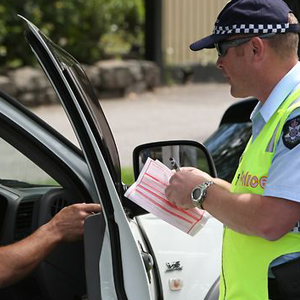 It’s a classic scenario: Mandie is cruising along at 31 km/h over the speed limit in an attempt to keep up with the rest of the cars on the road. She thinks she is simply going with the flow of the traffic when suddenly she sees flashing lights in her rear-view mirror.
It’s a classic scenario: Mandie is cruising along at 31 km/h over the speed limit in an attempt to keep up with the rest of the cars on the road. She thinks she is simply going with the flow of the traffic when suddenly she sees flashing lights in her rear-view mirror.
Mandie does not take traffic laws seriously and has come to accept traffic fines as a “fact of life”. She regards transgression as bending the rules rather than the commitment of a crime.
Months later, when the traffic notice arrives in the post, Mandie prepares herself for a speeding fine but is shocked when the notice informs her that she has to appear in court.
Unknown to Mandie and most other South Africans, an amendment to Section 35 of the National Road Traffic Act (the Act) was enacted in 2010, in terms of which the driver of a motor vehicle who exceeds the maximum speed limit by more than 30 km/h may be criminally prosecuted and that, if convicted, his/her driver’s licence may also be suspended.
This provision could be disastrous for many road users. Not only is Mandie required to appear in court, but she could also face the prospect of having her licence suspended and, what’s more, receive a criminal record.
Section 35 of the National Road Traffic Act
- In terms of Section 35(1)(aA)(i) and (ii) the phrase “in excess of” means a speed of 31km/h or more over the speed limit in an urban area and a speed of 41km/h or more over the speed limit outside of an urban area or on a freeway.
- If you commit any one of these offences and are stopped at the time of the offence, you will be arrested. You will accordingly be released on bail to appear in court on a stipulated date and time.
- If you are not stopped at the time, you will receive a notification in the post that you will be summonsed to appear in court in a “No Admission of Guilt” matter.
The notice will inform you that a summons in terms of Section 54 of the Criminal Procedure Act will be issued and served on you. Failure to appear in court on a criminal summons will lead to a warrant for your arrest being issued.
The Act requires a person to be convicted of an alleged offence before legal consequences follow. Since speeding as described above is a criminal offence, the State will still have to prove beyond a reasonable doubt that a person is guilty of such offence.
Furthermore, the suspension of your drivers licence for the period stipulated in the Act is not an optional requirement. It is a mandatory suspension period. One’s licence will be suspended for six months in the case of a first offence. Where a person is found guilty of a second offence, his/her licence may be suspended for five years and, in the case of the third or subsequent offence, for ten years.
Although many judicial officers (magistrates) have interpreted Section 35(3) as giving them discretion about suspension of your licence, it does not mean that if suspending your drivers licence will prejudice you, your licence will not be suspended.
The simple principle now applies: Speeding can have dramatic consequences, so do not speed under any circumstances. The days of simply paying your fines, are over.
If you want to get in touch with us to act in respect of any matter stated herein, please send an email to info@chrisfick.co.za
This article is a general information sheet and should not be used or relied on as legal or other professional advice. No liability can be accepted for any errors or omissions nor for any loss or damage arising from reliance upon any information herein. Always contact your legal adviser for specific and detailed advice.
